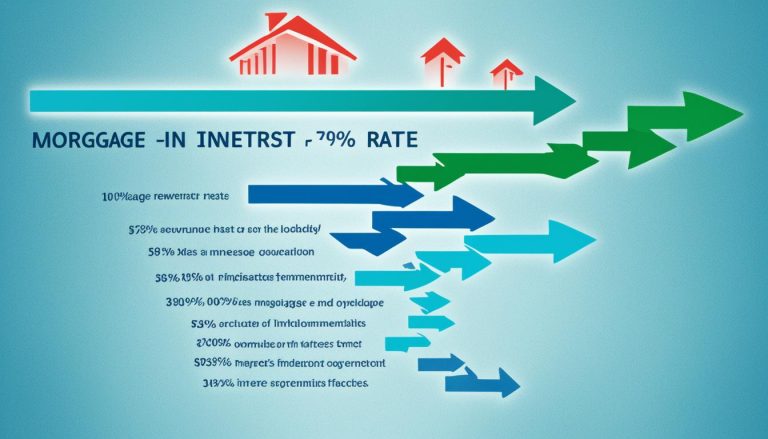In this guide, we’ll provide you with valuable insights on the application process, the effects on credit scores, and the implications for remortgaging. We’ll equip you with the knowledge you need to make informed decisions and plan your mortgage holiday wisely.
Whether you’re considering a mortgage holiday in the UK or exploring mortgage payment deferral options, this guide is here to help. Stay tuned for our expert advice and practical tips on managing your mortgage during times of financial difficulty or when planning for your dream getaway.
What is a Mortgage Holiday?
In times of financial hardship or unforeseen circumstances, such as a global pandemic or job loss, a mortgage holiday, also known as a mortgage payment break or mortgage payment deferral, can provide homeowners with much-needed relief. It allows you to pause your mortgage repayments for a specified period, giving you the opportunity to regain your financial stability.
How to Afford to Travel More Often? – Even with a Mortgage
Even with a mortgage, it is still possible to afford to travel more often. By making sacrifices and being mindful of your spending, you can prioritize saving money for travel. Cutting back on unnecessary expenses like frequent drinks, eating out, and gym memberships can free up funds for travel. Additionally, considering options like renting out your home or getting a lodger can help generate extra income to support your travel plans.
If you’re looking to travel more while managing a mortgage, here are some practical tips to make it happen:
- Track and analyze your expenses: Start by taking a close look at your monthly spending habits. Identify areas where you can cut back without sacrificing your lifestyle. This could mean reducing your entertainment expenses, finding more affordable alternatives for dining out, or canceling subscriptions to unused services.
- Create a dedicated travel fund: Set up a separate savings account specifically for your travel goals. Contribute to it regularly by allocating a portion of your income towards it each month. Automate this process to ensure consistent savings towards your travel fund.
- Optimize your travel budget: Be strategic when planning your trips. Look for off-peak travel periods when flights and accommodation prices are generally lower. Consider alternative accommodation options like local guesthouses or vacation rentals for more cost-effective stays. Additionally, be flexible with your destination choices to take advantage of affordable options.
- Maximize your income: Explore opportunities to generate additional income to support your travel plans. Renting out a spare room in your home as a homestay or listing your property on vacation rental platforms like Airbnb can help supplement your mortgage payments and provide extra cash for your travels.
- Travel smart: Use travel resources such as comparison websites and deal alert services to find the best bargains on flights, accommodation, and activities. Consider using travel credit cards that offer rewards, such as airline miles or hotel points, to save on future travel expenses.
By implementing these strategies and finding the right balance between mortgage payments and travel savings, you can enjoy the best of both worlds. Take advantage of your mortgage holiday scheme’s flexibility to create memorable travel experiences without compromising your financial stability.

Case Study: Julia’s Adventure-Filled Mortgage Holiday
| Expense | Before | After |
|---|---|---|
| Monthly Mortgage Payment | £1,200 | £0 |
| Eating Out | £200 | £50 |
| Gym Membership | £80 | £0 |
| Entertainment | £150 | £50 |
| Renting Out Spare Room | N/A | £300 |
| Total Monthly Savings | £0 | £400 |
Julia, a homeowner, wanted to travel more frequently but was concerned about her mortgage payments. She decided to explore the mortgage holiday scheme and found that by temporarily pausing her mortgage payments, she could redirect those funds towards her travel fund.
Julia made some adjustments in her lifestyle to maximize her savings. She started cooking meals at home more often, limiting her eating out expenditure to occasional treats. She canceled her gym membership and found alternative ways to stay active, such as jogging outdoors and doing home workouts.
In addition to these lifestyle changes, Julia decided to rent out her spare room on Airbnb, generating a consistent monthly income to support her travel plans. By implementing these strategies, she saved an additional £400 per month, which was added to her dedicated travel fund.
Julia’s mortgage holiday allowed her to take an extended trip to Southeast Asia, ticking off multiple destinations from her bucket list. She also explored ways to make her travel budget go further, such as booking flights during off-peak periods, staying in budget-friendly accommodations, and being strategic with her dining choices.
Thanks to her careful planning and financial adjustments, Julia was able to afford her dream adventures while still managing her mortgage responsibly. Her mortgage holiday not only provided temporary relief from payments but also served as a catalyst for her travel aspirations.
How to Save Money Without Compromising on Lifestyle?
Saving money doesn’t have to mean compromising on your lifestyle. By making small changes and being conscious of your spending, you can save money without sacrificing the things you enjoy. Cut back on non-essential expenses like dining out and shopping, and look for money-saving opportunities such as using discount vouchers or hosting a dinner party instead of going out. These small adjustments can add up over time and help you save for your travel goals while still enjoying your current lifestyle.
Create a Budget
A crucial step in saving money is creating a budget. Take some time to evaluate your income and expenses, and identify areas where you can cut back. Allocate a specific portion of your income towards savings, and track your spending to ensure you stay on track.
Reduce Unnecessary Expenses
Cut back on non-essential expenses to free up more money for savings. Evaluate your spending habits and identify areas where you can make adjustments. Consider packing your lunch instead of eating out, brewing your own coffee at home instead of buying it daily, or canceling subscriptions or memberships you no longer use.
Take Advantage of Discounts
Look for money-saving opportunities such as using discount vouchers or coupons. Many retailers offer discounts on various products and services. Before making a purchase, research and compare prices to find the best deals.
Host Gatherings at Home
Instead of going out to expensive restaurants or bars, consider hosting gatherings or dinner parties at home. Not only will you save money on the cost of eating out, but you’ll also have the opportunity to showcase your culinary skills and entertain your friends and family.
| Savings Tips | Benefits |
|---|---|
| Cut back on dining out | Saves money and allows you to control the quality of ingredients |
| Use discount vouchers or coupons | Reduces the cost of various products and services |
| Host gatherings at home | Saves money on expensive restaurant bills and creates a more personalized experience |
Remember, saving money is not about depriving yourself of enjoyment, but rather finding a balance between your current lifestyle and your financial goals. By making mindful choices and adopting frugal habits, you can save money while still enjoying the things you love.
How to Finance Your Mortgage While You’re Away?
If you’re planning to travel while still having a mortgage, there are options to ensure your mortgage payments are taken care of while you’re away. The mortgage holiday application process allows you to pause your mortgage repayments for a specific period of time. However, it’s important to make arrangements with your lender to ensure your mortgage is still paid during your absence.
Option 1: Getting a Lodger or Renting Out Your Home
One option to cover your mortgage payments while you’re away is to get a lodger or rent out your home. Platforms like Airbnb offer a convenient way to generate income that can help cover your mortgage payments during your travels. By renting out your property, you can continue to receive rental income and ensure your mortgage is paid on time.

Option 2: Temporarily Staying with Friends or Family
Another option is to explore the possibility of temporarily staying with friends or family while you’re away and contribute to their household expenses. By communicating with your loved ones and offering to help cover some of the costs, you can redirect your mortgage payment towards your temporary living arrangements without defaulting on your mortgage.
Effective Communication with Your Lender
Regardless of the option you choose, it’s essential to communicate with your lender. Inform them about your travel plans and the arrangements you’ve made to ensure your mortgage payments are taken care of. Being transparent and proactive in your communication will demonstrate your commitment to fulfilling your financial obligations, even while you’re away.
Remember, the mortgage holiday provides temporary relief, but you still need to make arrangements to fulfill your mortgage obligations. By exploring these options and openly communicating with your lender, you can enjoy your travels while ensuring your mortgage is managed responsibly.
How to Keep Travel Affordable?
When it comes to planning your travels, affordability is key. By making smart choices and being mindful of your budget, you can enjoy memorable trips without breaking the bank. Here are some tips to help you travel on a budget while managing your mortgage payments.
Choose Budget-Friendly Destinations
Opting for cheaper destinations can significantly reduce your travel expenses. Consider visiting countries or cities where the cost of living is lower, allowing you to stretch your budget further. In these destinations, you can often find affordable accommodation, meals, and activities, making your trip more economical and enjoyable.
Travel Off-Peak
Travelling during off-peak seasons can lead to substantial savings on flights and accommodation. Popular tourist destinations tend to have higher prices during peak travel times. By planning your trip for quieter periods, you can take advantage of lower prices, less crowded attractions, and a more authentic local experience.
Search for Discounts and Deals
Take advantage of discounts, deals, and promotions to further reduce the overall cost of your trip. Websites like Groupon offer discounted packages for accommodations, attractions, and activities. Sign up for newsletters or follow travel deal websites to stay informed about the latest offers and save money on your travel expenses.
By researching and planning ahead, you can find affordable options for your travel adventures while effectively managing your mortgage payments. Make sure to balance your financial responsibilities with your desire to explore the world, ensuring a well-rounded and satisfying travel experience.

| Travel Tips | Mortgage Payment Tips |
|---|---|
|
|
How to Save for a Holiday?
Saving for a holiday requires careful budgeting and planning. It’s important to consider all aspects of your trip, including accommodation, food, travel, and activities. Researching prices and comparing options can help you find more affordable alternatives. Additionally, budgeting for tips and other additional expenses can prevent overspending. By having a clear savings goal and setting aside money regularly, you can gradually build the funds needed for your holiday without compromising other financial obligations, such as your mortgage.
Comparing Accommodation Options
When planning your holiday, carefully evaluate your accommodation options. Consider staying in budget-friendly hotels, hostels, or even booking vacation rentals, which can often offer more affordable rates compared to traditional hotels. Additionally, look for deals or discounts offered by accommodation providers to help further reduce costs.
Creating a Travel Budget
To effectively save for your holiday, it’s crucial to create a comprehensive travel budget. Determine how much you’ll need for transportation, accommodation, meals, activities, and any additional expenses. By breaking down your expenses, you can understand how much you need to save each month to reach your holiday savings goal. This will help you stay on track and allocate funds accordingly.
Exploring Alternative Transportation Options
Consider alternative transportation options to save money on travel expenses. Instead of flying, explore the possibility of taking a train or bus to your destination. Not only can this be more cost-effective, but it can also provide a unique travel experience. Additionally, consider using public transportation in your destination city instead of relying on more expensive taxis or rental cars.
Utilizing Travel Rewards Programs
If you frequently travel and have a credit card that offers travel rewards, make sure to take advantage of these programs. Accumulate reward points or miles on your everyday spending and use them to offset the cost of your holiday. This can help reduce expenses and make your dream holiday more affordable.
| Accommodation Type | Average Cost per Night |
|---|---|
| Budget Hotel | £50-£100 |
| Hostel | £20-£40 |
| Vacation Rental | £70-£150 |
By following these tips and being mindful of your spending, you can save for your holiday without compromising your mortgage payments. Planning ahead, researching prices, and making smart choices will help you achieve your travel goals while maintaining financial stability.
Understanding Repayment Plans for Interest-Only Mortgages
Interest-only mortgages offer homeowners the flexibility to pay only the interest on their mortgage loan for a specific period of time. However, it’s crucial to have a well-thought-out repayment plan in place to cover the principal amount borrowed at the end of the loan term.
Repayment plans may involve various strategies, including:
- Building up savings: Allocating funds towards a savings account dedicated to repaying the principal amount.
- Investing: Making investments that aim to generate sufficient returns to cover the loan principal.
- Other assets: Utilizing assets such as property, investments, or other valuable possessions to repay the loan.
Lenders will evaluate the viability of the repayment plan and may require periodic reviews to ensure it remains on track. It’s important to consult with a financial advisor or mortgage professional to develop a repayment strategy that suits your individual circumstances.
Importance of a Repayment Plan
Having a repayment plan for an interest-only mortgage is critical because, unlike traditional mortgages, the loan’s principal balance doesn’t decrease over time.
Without a repayment strategy, homeowners may face challenges when the interest-only period ends. They will then need to find alternative ways to repay the remaining loan balance, which can be a substantial financial burden.
By implementing a well-structured repayment plan, homeowners can ensure that they are prepared for the eventual repayment of the principal and avoid any unexpected financial strain.
Maintaining and Reviewing the Repayment Plan
Once you have established a repayment plan, it’s essential to maintain regular reviews of its progress. This involves:
- Monitoring savings or investment performance to assess whether they are on track to cover the loan principal.
- Reviewing any changes in personal circumstances that may affect the viability of the repayment plan.
- Seeking professional advice to ensure the plan remains appropriate and aligned with financial goals.
Regular reviews allow homeowners to make any necessary adjustments to their plans and address any financial challenges promptly.
| Advantages of Repayment Plans for Interest-Only Mortgages | Disadvantages of Repayment Plans for Interest-Only Mortgages |
|---|---|
| Enables homeowners to manage their finances effectively by focusing on interest payments only. | Requires careful financial planning and discipline to ensure funds are available to repay the loan principal. |
| Provides flexibility during the interest-only period, allowing homeowners to allocate funds to other investments or savings. | May necessitate selling assets or making significant financial adjustments to repay the loan principal. |
| Allows homeowners to potentially benefit from investment opportunities that may generate higher returns than the cost of the mortgage interest. | Carries the risk of insufficient funds to repay the loan principal, leading to financial challenges or potential property repossession. |
Conclusion
A mortgage holiday can be a helpful option for homeowners in need of temporary financial relief. By pausing mortgage payments for a specific period, homeowners can ease their financial burden during difficult times. However, it’s important to consider the potential consequences of a mortgage holiday, such as its impact on credit scores and remortgaging options.
Prior to making a decision, it is crucial for homeowners to carefully assess their financial situation and consult with their lender. Understanding the terms and conditions of a mortgage holiday, as well as its implications, can help homeowners make informed choices that align with their overall financial goals.
While a mortgage holiday may provide short-term relief, it’s essential to plan accordingly and consider the long-term implications. Homeowners should explore alternative options if necessary, such as seeking financial advice or considering remortgaging. By taking a proactive approach and staying informed, homeowners can effectively manage their mortgage during times of financial difficulty or when planning for travel.






